Composite Restoration of Tooth Abrasions
Tooth abrasion can be caused by a variety of things, from over-aggressive brushing, or from habits such as chewing on items such as paperclips, or pencils, to tooth grinding (bruxism.)
Treatment to restore tooth abrasion is performed in order to rebuild the structure of the damaged tooth. This treatment will restore the esthetics (appearance) and integrity, in addition to adding to the strength of the tooth. It will also help to reduce the sensitivity that usually accompanies such problems. The following information is to help you maintain the restorations and prevent future problems:
- The gums may be slightly tender after the anesthesia wears off. Brush and floss normally to prevent the buildup of bacterial plaque. If the gums are tender to the brush, hold the bristles under hot tap water for a minute or two prior to brushing; this will soften the bristles and allow for gentler cleaning.
- Warm salt water rinses, as often as needed, will help reduce the tenderness in the gums. Use one-half to one teaspoon of salt in an 8 oz. glass of warm water. Swish vigorously for one minute and expectorate. (Do not use if on salt-restricted diet. )
- If the teeth are sensitive to brushing, the use of a desensitizing toothpaste (Denquel, Sensodyne, etc. ) may be suggested. This should be used two times a day for two weeks.
- Please note that even though the abrasion or notch on the tooth has been repaired, the gum will not return to its previous height on the tooth. This recession of the gum is permanent.
- In order to prevent further gum recession, and additional abrasion of the tooth, it is imperative that you use the proper brushing technique. DO NOT saw back-and-forth with your toothbrush. Use a small circular or up-and-down scrubbing motion with your toothbrush. Use a soft toothbrush and a small amount of toothpaste when brushing as most over-counter toothpastes are very abrasive.
If you have any questions or problems, please call our office at (239) 206-1500.










